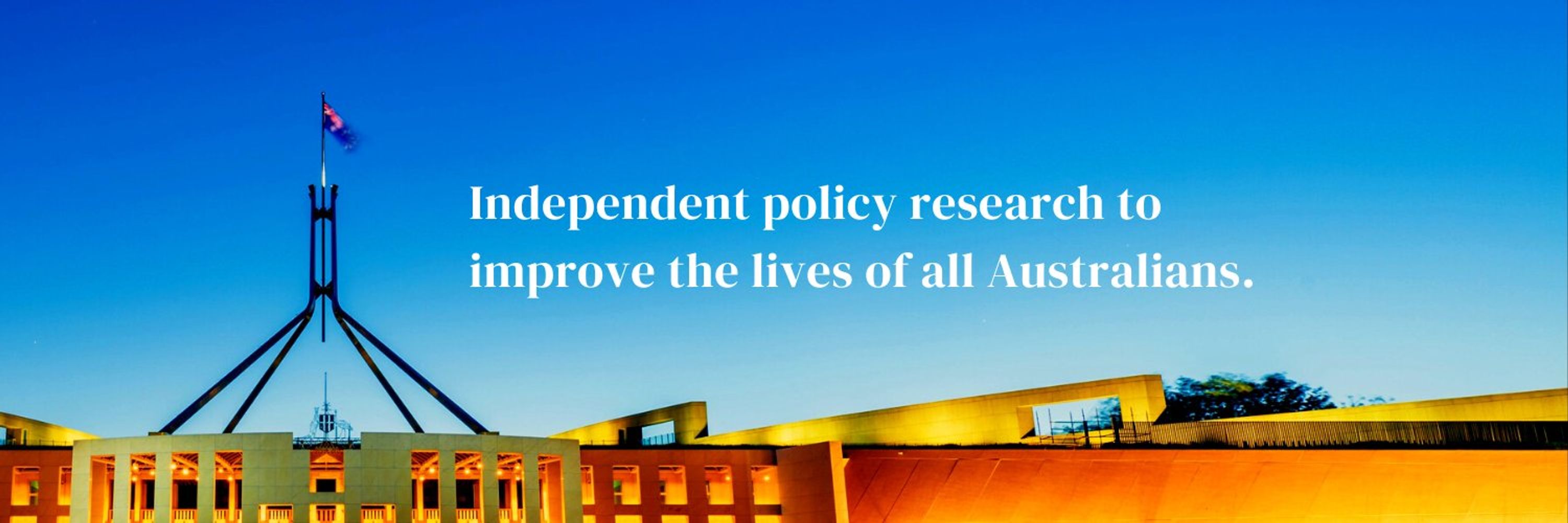
State gov’ts set unrealistically low budgets at the start of the year, then bail out hospitals when they run a deficit at the end of the year.

State gov’ts set unrealistically low budgets at the start of the year, then bail out hospitals when they run a deficit at the end of the year.
Shorter stays for many surgeries are safer and cheaper, and yet, Australia is behind many other countries in same-day care.

Shorter stays for many surgeries are safer and cheaper, and yet, Australia is behind many other countries in same-day care.

The average cost of a knee replacement in Victoria varies by $13,600.
In Queensland, it’s $11,000. In NSW, $9,000.

The average cost of a knee replacement in Victoria varies by $13,600.
In Queensland, it’s $11,000. In NSW, $9,000.
As Australia gets bigger, older, and sicker, spending per person could go up by another third in the next decade.

As Australia gets bigger, older, and sicker, spending per person could go up by another third in the next decade.
Yet spending has been growing by $3b a year.
Australia needs to fix broken hospital budgets and get smarter about spending.
Our new report shows how: buff.ly/Jg6jvVs

Yet spending has been growing by $3b a year.
Australia needs to fix broken hospital budgets and get smarter about spending.
Our new report shows how: buff.ly/Jg6jvVs



On our latest podcast, @brendan-coates.bsky.social Joey Moloney and @mbowes.bsky.social discuss their new housing report. buff.ly/mQMIh0j #auspol

On our latest podcast, @brendan-coates.bsky.social Joey Moloney and @mbowes.bsky.social discuss their new housing report. buff.ly/mQMIh0j #auspol
Making this change would unlock potential for more than one million new homes in Sydney alone.

Making this change would unlock potential for more than one million new homes in Sydney alone.
The NSW and Vic gov’ts have made meaningful progress towards allowing more homes on well-located land in our major cities.
But more is needed.

The NSW and Vic gov’ts have made meaningful progress towards allowing more homes on well-located land in our major cities.
But more is needed.

3/4 or more of residential land in Brisbane, Perth, and Adelaide is zoned for two storeys or fewer.

3/4 or more of residential land in Brisbane, Perth, and Adelaide is zoned for two storeys or fewer.
A big reason is that we no longer build enough homes, especially where people most want to live.

A big reason is that we no longer build enough homes, especially where people most want to live.
Building more homes will create cheaper housing and more productive cities. Our new report shows how. buff.ly/NfAM6C7 #auspol

Building more homes will create cheaper housing and more productive cities. Our new report shows how. buff.ly/NfAM6C7 #auspol
Explore the full list: buff.ly/LHA2JYq

Explore the full list: buff.ly/LHA2JYq
Grattan Institute has been named in the global ‘100 Think Tanks to Watch 2025’, by the ‘On Think Tanks’ organisation.
We’re delighted by this recognition by our peers, and determined to continue improving public policy in 2026 and beyond.
#auspol
buff.ly/uvXvrE8

Grattan Institute has been named in the global ‘100 Think Tanks to Watch 2025’, by the ‘On Think Tanks’ organisation.
We’re delighted by this recognition by our peers, and determined to continue improving public policy in 2026 and beyond.
#auspol
buff.ly/uvXvrE8
Our choice is not whether we fight climate change. Our only choice is whether we achieve the energy transition well or badly, writes Tony Wood in today’s Financial Review.
buff.ly/MQqF5G0
#auspol

Our choice is not whether we fight climate change. Our only choice is whether we achieve the energy transition well or badly, writes Tony Wood in today’s Financial Review.
buff.ly/MQqF5G0
#auspol
Grattan’s Alison Reeve and Tony Wood show that energy bills can halve by 2050, allowing government to cut emissions without hurting households. buff.ly/WB9hfmJ #auspol

Grattan’s Alison Reeve and Tony Wood show that energy bills can halve by 2050, allowing government to cut emissions without hurting households. buff.ly/WB9hfmJ #auspol
Our modelling shows that the Safeguard can cut emissions effectively with a lower system cost than a scenario with no new emissions-reduction policy.

Our modelling shows that the Safeguard can cut emissions effectively with a lower system cost than a scenario with no new emissions-reduction policy.
Without a constraint on electricity emissions, Australia will find it difficult to meet its emissions-reduction targets. Left to its own devices, the electricity sector will continue to decarbonise, but not fast enough.

Without a constraint on electricity emissions, Australia will find it difficult to meet its emissions-reduction targets. Left to its own devices, the electricity sector will continue to decarbonise, but not fast enough.


Our new report finds that Australian household energy bills are set to halve by 2050, leaving room for the federal gov't to cut emissions in the electricity sector without hurting households.
Here’s how: buff.ly/9UPN4ub

Our new report finds that Australian household energy bills are set to halve by 2050, leaving room for the federal gov't to cut emissions in the electricity sector without hurting households.
Here’s how: buff.ly/9UPN4ub

